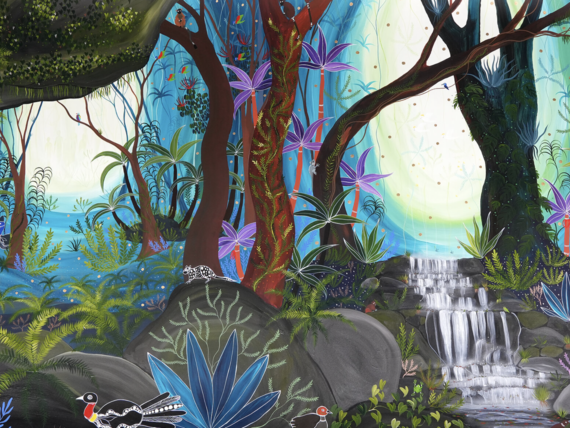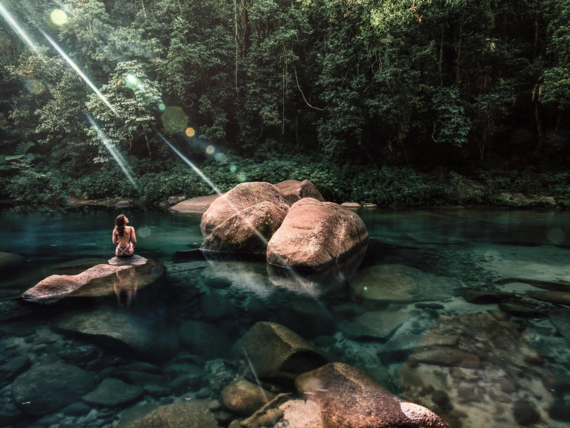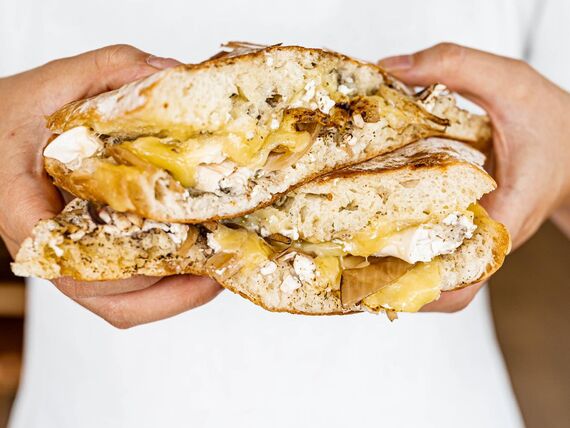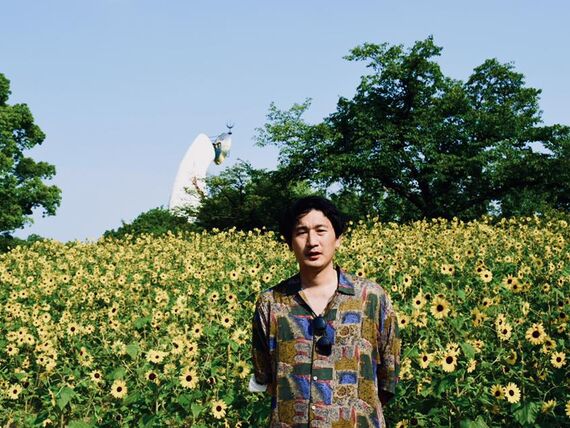Huge crocs just the tip of the iceberg according to surveys in non-traditional Tablelands habitat
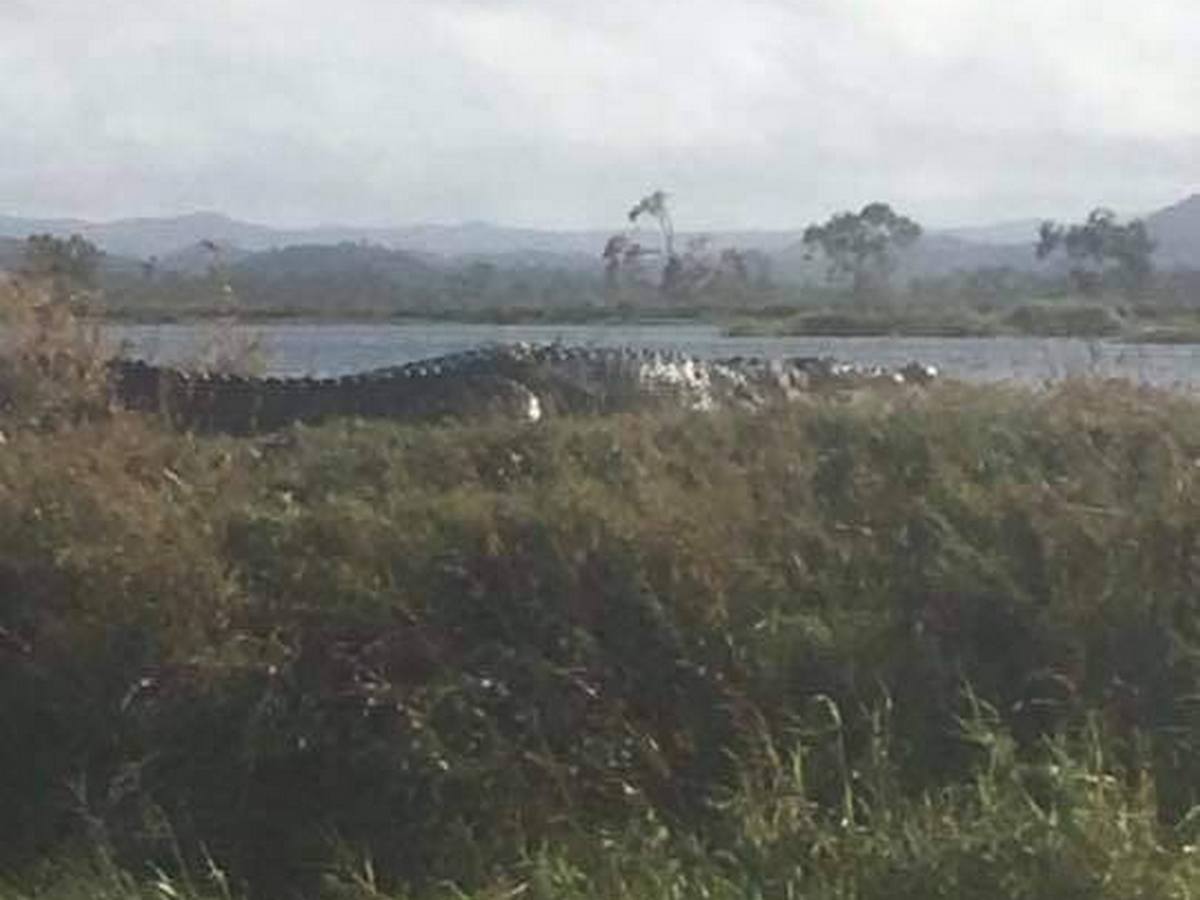
A crocodile expert who’s conducted surveys of what he calls a ‘feral’ population just north of Mareeba reckons between 20 and 40 of the reptiles inhabit the area, around three of which measure above four metres in length.
The shocking estimate comes as new photos have emerged of a huge crocodile sunbaking next to a private dam in Biboohra.
It’s sparked debate among locals about whether it’s the same animal as a four metre-plus reptile nicknamed Bruce, which has been targeted by the Department of Environment and Science for removal.
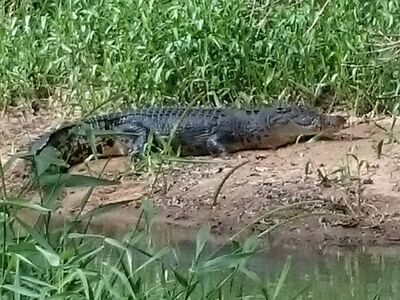
Local man Brodie Moloney from Top End Crocodile Service, who’s been conducting surveys for the past three years, reckons the reptiles are one and the same.
“I believe it’s the same crocodile,” he told Tropic Now.
“But there’s another one around the bridge at Two Mile Creek that’s probably about two-and-a-half metres long.
“There’s up to three four metre fellas kicking around that entire region.”
Mr Moloney is a firm believer that the reptiles escaped from the nearby Melaleuca Crocodile Farm.
“The crocodiles in Mareeba are a feral population, they have been introduced, there’s no record of saltwater crocodiles being naturally occurring that far up the Mitchell River,” he said.
“The farm’s been there for about 20 years, nowadays it’s quite secure but over the years these crocs have escaped.
“A four metre animal I’d say is 40 years old at least and that animal probably escaped the farm years ago but was already mature at the time.”
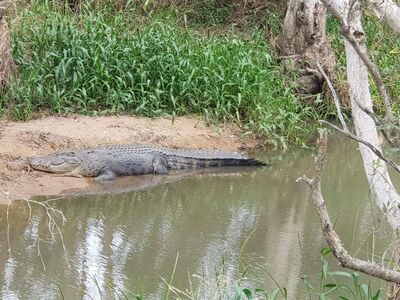
Mr Moloney said the average size of crocodiles in the area is much smaller, at one to two metres, but there’s a possibility they’re breeding.
"Obviously Mareeba’s not natural habitat for them but in summer it gets hot and they can breed, there’s definitely a potential.
“The habitat around Lake Mitchell and Two Mile Creek is fantastic for them so as time goes by it’s just going to get worse, the numbers will definitely increase.”
SAFETY CONCERNS
Among those already impacted is Sam Musumeci, who runs farming and sand supply businesses at Biboohra.
“I was actually considering putting a glass cage walk through the creek to make a dollar out of it,” he joked.
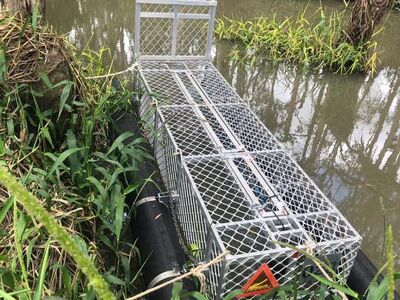
“But on a serious note, we are concerned and we’ve tried to keep the address of where it is very quiet because young kids are coming out on bikes and motorbikes to have a look and someone’s going to get hurt.”
Mr Musumeci said he’s had to organise specialised safety training for his staff.
“We’re in the process of changing our procedures so our workforce know how to go into the creek," he said.
“We need to go into the water to pull up our foot valves for the pumps and stuff.
“You’ve got to have a lookout and you’ve got to keep something between you and a potential crocodile.”
Mr Musumeci, who's also the Vice President of the Mareeba Chamber of Commerce, wants a cull.
“The Department sees the animal as a protected species, where in fact it is our belief that they were introduced by some means or coincidentally the crocodile farm that’s 300 metres behind us," he said.
“If they were introduced and they weren’t born naturally why can't the Department exterminate the animal or handle it as it would be handled in a croc farm?”
“They’ve laid a trap but the croc swam around the trap, beside the trap, under the trap, it never went into the trap and I can tell you that trap is shorter than the crocodile, too.”
Croc catcher Brodie Moloney is urging the State Government to grant him a permit to remove the reptiles, similar to the permit he has for such work in the Northern Territory.
“If the problem’s left and they’re not doing anything about these crocs they could get established in the Barron River in Mareeba and everyone goes down the Barron and fishes, swims, they kayak down it all the time,” he said.
“If I was to get a permit, I could put a lot of effort into removing them.”


